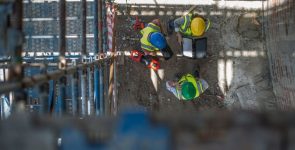
The latest educational establishment to welcome the wheel-based delivery robots is Purdue University in West Lafayette, Indiana.
From this week onwards, Purdue University’s 43,000 students and staff will be able to use a smartphone app to order food and drinks for delivery to anywhere on the campus within minutes.
Purdue University’s robot is the work of Starship Technologies, one of the leaders in the field of autonomous delivery bots. Thirty of them have been deployed on the campus, with deliveries costing customers $1.99 a time.
How it works:
Anyone on campus wishing to have food delivered has to begin the process by diving into the Starship Deliveries app to view the available menus. After making a selection, it’s simply a case of dropping a pin on the map to indicate the delivery point. When the robot sets off, its precise location can be tracked in real-time, a process likely to have hungry students and staff salivating messily as the bot trundles ever closer.
When the robot arrives, an alert is sent to the customer’s phone, whereupon they can meet the robot, unlock the container, and access their meal. According to Purdue, the container can hold items weighing up to 20 pounds.
Beth McCuskey, Purdue’s vice provost for student life, said that the university was excited to see the technology come to its campus. “Food delivery apps are becoming increasingly popular with college students,” she said. She also added that this service adds more options and flexibility for our campus diners.
San Francisco-based Starship Technologies was launched in 2014 and is trialing its delivery robot at an increasing number of locations around the world. Rather like autonomous cars, the robot uses a combination of machine learning, artificial intelligence, and sensors for safe and accurate movement. For extra security, a team of humans can be used to monitor their progress remotely and even take control, if required.
Starship Technologies is not the only company creating such a robot. Amazon, Postmates, and FedEx are all testing their own designs for last-mile deliveries to customers’ homes, while another firm has added a twist by creating packs of “robodogs” to deliver items.












